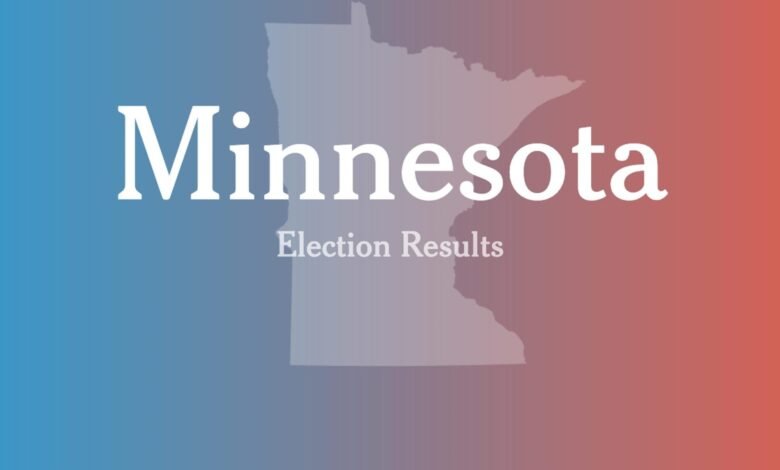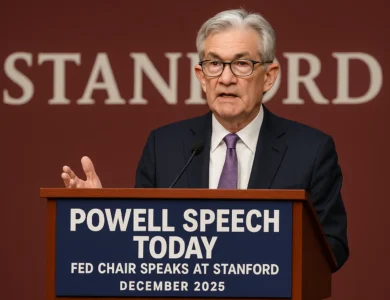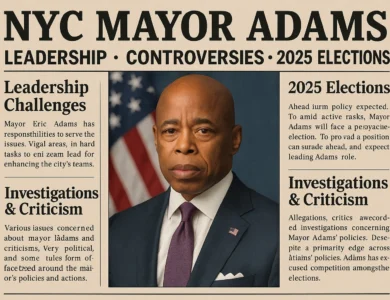
The 2025 Minnesota special election has delivered one of the most significant political outcomes in recent state history, with Xp Lee’s victory fundamentally altering the balance of power in the Minnesota House of Representatives. This comprehensive analysis examines the shocking results, key winners, and far-reaching implications of the September 16, 2025 special election that has captivated political observers across the nation.
Introduction: A Political Earthquake in the Land of 10,000 Lakes
Minnesota’s political landscape experienced a seismic shift on September 16, 2025, when voters cast their ballots in multiple special elections that would determine the future direction of state governance. The most closely watched contest centered on District 34B, where the tragic assassination of beloved House Speaker Emerita Melissa Hortman created a vacancy that would prove decisive in determining legislative control.
The Minnesota special election results 2025 have revealed outcomes that few political analysts predicted, with shocking wins that have immediately reshaped the power dynamics in St. Paul. From Brooklyn Park to the Twin Cities metro area, voters delivered verdicts that will influence policy decisions affecting millions of Minnesotans for years to come.
The stakes couldn’t have been higher. Republicans had gained a narrow 67-66 advantage in the Minnesota House following previous electoral victories, giving them unprecedented control over the legislative agenda. However, the outcome of these special elections Minnesota 2025 has restored the delicate balance that has characterized state politics in recent years, creating new opportunities for bipartisan cooperation while simultaneously raising questions about governance in a divided legislature.
Breaking Down the Shocking Election Results
District 34B: The Race That Changed Everything
The most consequential Minnesota special election 2025 took place in District 34B, where DFL candidate Xp Lee achieved a decisive victory over Republican challenger Ruth Bittner. This election result was particularly stunning given the heightened political tensions surrounding the circumstances that created the vacancy.
Xp Lee, a health equity analyst for the Minnesota Department of Health and former Brooklyn Park City Council member, secured the seat representing parts of Brooklyn Park, Champlin, and Coon Rapids. The victory marked a critical win for the Democratic-Farmer-Labor Party in maintaining their political presence in the suburban Twin Cities region.
The election results Minnesota showed Lee’s victory was decisive, though the exact margins remain under final tabulation. Political observers noted the significance of this outcome, as it restored the 67-67 tie in the Minnesota House of Representatives, effectively ending the brief period of Republican control.
Senate District 6: Republican Consolidation
In another significant 2025 Minnesota election, Senate District 6 witnessed Republican businesswoman Keri Heintzeman defeating DFLer Denise Slipy in a contest that solidified Republican gains in traditionally competitive districts. This special election victory demonstrated the complex political currents flowing through Minnesota in 2025.
The primary election results in this district had been particularly noteworthy, with Heintzeman overcoming a crowded Republican field that included high-profile candidates like former Minnesota Republican Party chair Jennifer Carnahan and Josh Gazelka. This victory represented a significant GOP win in expanding their influence in the state Senate.
St. Paul City Council Race: Ranked Choice Success
The St. Paul special election for the city council seat vacated by outgoing council President Mitra Jalali produced another surprising outcome. Activist Molly Coleman secured victory in the first round of ranked-choice voting with 52% of the vote, demonstrating the effectiveness of this electoral system in producing clear winners in multi-candidate fields.
Coleman’s victory over Saint Paul school board member Chauntyll Allen, public health educator Cole Hanson, and consultant Carolyn Will reflected the changing political preferences in Minnesota’s capital city. This election win highlighted the growing influence of progressive activism in local Minnesota politics.
Political Implications and Power Dynamics
Return of the 67-67 Tie: Governance Challenges Ahead
The restoration of the 67-67 tie in the Minnesota House creates unprecedented challenges for legislative governance. This Minnesota election outcome means that both parties must work together to pass any meaningful legislation, potentially leading to either historic bipartisan cooperation or complete legislative gridlock.
House Republicans had briefly enjoyed majority control, allowing them to advance their policy agenda without significant Democratic input. However, the special election results 2025 have forced a return to power-sharing arrangements that characterized the beginning of the legislative session.
The tie situation requires both parties to negotiate power-sharing agreements, committee assignments, and procedural rules. This political balance could either foster unprecedented bipartisan collaboration or create a recipe for legislative dysfunction, depending on the willingness of leaders from both parties to compromise.
Impact on 2026 Electoral Strategy
These Minnesota special elections 2025 provide crucial insights into voter preferences ahead of the regular 2026 electoral cycle. The results suggest that despite national political trends, Minnesota voters continue to value moderate candidates who can work across party lines.
For Democrats in Minnesota, the victories demonstrate the resilience of their suburban coalition, particularly in the Twin Cities metropolitan area. The ability to hold traditionally Democratic seats while expanding their appeal to independent voters bodes well for future electoral prospects.
Republican strategists will likely analyze these results to understand where their messaging resonated and where it fell short. The mixed outcomes suggest that while Republicans can compete effectively in certain districts, they must refine their approach to appeal to Minnesota’s increasingly diverse electorate.
Candidate Profiles: The Winners Who Made History
Xp Lee: A New Voice in Minnesota Politics
Xp Lee’s victory represents more than just a single election win; it symbolizes the changing face of Minnesota politics. As a health equity analyst with extensive community involvement, Lee brings a unique perspective to the legislature that reflects the diverse needs of modern Minnesota.
Lee’s background in public health positions him well to address ongoing challenges related to healthcare access, community wellness, and social equity. His experience on the Brooklyn Park City Council provides valuable local governance experience that will serve him well in the state legislature.
The candidate’s victory was built on a platform emphasizing community engagement, healthcare accessibility, and economic opportunity for all Minnesotans. This message clearly resonated with voters in District 34B, demonstrating the continued appeal of progressive policies in suburban communities.
Keri Heintzeman: Business Experience Meets Public Service
Keri Heintzeman’s victory in Senate District 6 represents a significant Republican win that showcases the party’s ability to recruit quality candidates with real-world business experience. As a businesswoman, Heintzeman campaigned on themes of fiscal responsibility, economic development, and efficient government operations.
Her primary victory over well-known political figures like Jennifer Carnahan demonstrated the appetite for fresh faces in Minnesota Republican politics. This election result suggests that voters are increasingly interested in candidates who can bring practical experience rather than just political connections to public service.
Molly Coleman: Progressive Activism Meets Electoral Success
Molly Coleman’s victory in the St. Paul City Council race illustrates the growing influence of grassroots activism in Minnesota elections. Her ability to win in the first round of ranked-choice voting with 52% of the vote demonstrates strong broad-based support for her progressive platform.
Coleman’s background in community activism provides her with deep connections to various constituencies within St. Paul. Her election victory suggests that voters value candidates who have demonstrated long-term commitment to community improvement rather than traditional political credentials.
Campaign Analysis: Strategies That Worked
Ground Game Excellence
The successful campaigns in these Minnesota special elections shared common characteristics that political analysts are already studying for future reference. Superior grassroots organization, targeted voter outreach, and effective use of digital platforms characterized the winning efforts.
Voter turnout operations proved crucial in determining outcomes, particularly in the closely contested District 34B race. The ability to identify, contact, and mobilize supporters on election day made the difference between victory and defeat in several contests.
Message Discipline and Local Focus
Winning candidates demonstrated remarkable message discipline, focusing on local issues that directly affected voters rather than getting drawn into national political debates. This approach allowed them to build broader coalitions that transcended traditional party lines.
Local endorsements played a particularly important role, with community leaders, union representatives, and civic organizations providing credibility and voter contact resources that proved decisive in close races.
Looking Forward: What These Results Mean for Minnesota
Legislative Priorities in a Tied House
The 67-67 tie in the Minnesota House will force both parties to identify areas of potential compromise if they hope to pass meaningful legislation. Infrastructure investment, education funding, and healthcare access represent areas where bipartisan cooperation might be possible.
Budget negotiations will prove particularly challenging, as both parties will need to find common ground on spending priorities and revenue generation. The tie situation gives both parties effective veto power over the other’s agenda, requiring unprecedented levels of cooperation.
Electoral Implications for 2026
These special election results provide important data points for understanding voter preferences ahead of the 2026 regular elections. The outcomes suggest that Minnesota remains a competitive battleground where both parties can achieve victories with the right candidates and messages.
Suburban voters continue to play a decisive role in Minnesota politics, and their preferences for moderate candidates who can work across party lines will likely influence candidate recruitment and campaign strategies for the next electoral cycle.
Conclusion
The 2025 Minnesota special election results have delivered outcomes that few predicted but many will study for years to come. From Xp Lee’s historic victory that restored balance to the Minnesota House to the diverse array of winners across the state, these elections have demonstrated the continued vitality of Minnesota’s democratic processes.
The shocking wins revealed in these contests reflect the complex political preferences of Minnesota voters, who continue to value candidates who can effectively represent their communities while working collaboratively to address shared challenges. As the state moves forward with a tied legislature and newly elected officials taking office, the true test will be whether these election results lead to effective governance or political gridlock.
The implications of these Minnesota special elections 2025 will reverberate through the state’s political landscape for years to come, influencing policy debates, electoral strategies, and the fundamental balance of power in Minnesota government. For political observers, candidates, and voters alike, these results provide valuable insights into the evolving nature of Minnesota politics in an era of increasing polarization and change.
Read More: 10 Shocking Facts About Stephen Miller’s White House Role






